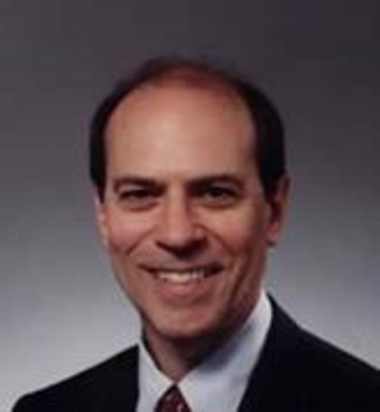Analysis: Marriage shift has Kan. right scrambling

Topeka, Kan. (AP) — Religious conservatives in Kansas fear that the legal wall they built against gay marriage will soon tumble, and they're looking for legislators to help them dig a new line of defense in resisting a growing American tolerance of same-sex relationships.
A cultural shift already was underway in 2005, when 70 percent of voters in a special election approved an amendment to the state constitution to ban gay marriage. Conservative religious leaders and their legislative allies believed the amendment would prevent lawmakers or the state courts from overturning the traditional policy on marriage — perhaps long after a majority of Kansans no longer had moral objections to gay and lesbian relationships.
Gay-marriage opponents now worry that their Kansas bulwark might not hold up much longer, thanks to recent federal court decisions in Oklahoma and Utah striking down those states' bans. The Kansas House Federal and State Affairs Committee plans to debate a bill Tuesday that anticipates a day when the state recognizes same-sex marriages.
The bill would block lawsuits or government sanctions against individuals, groups and businesses refusing on religious grounds to recognize same-sex marriages or declining to provide goods, services, accommodations or benefits to gay couples.
Supporters are quick to note that the bill's language isn't specifically limited to same-sex relationships and describe it as an even-handed religious liberties measure. Yet Kansas lawmakers almost certainly wouldn't be considering such a proposal at all if the legal and cultural climate surrounding gay marriage hadn't shifted dramatically, endangering the state's constitutional ban less than a decade after its enactment.
"At that time, we thought that — that put some finality to the issue," said Rep. Steve Brunk, the House committee's chairman, a conservative Wichita Republican.
Under the bill, no individual, business or religious group with "sincerely held religious beliefs" could be required by "any governmental entity" to provide services, facilities, goods, employment or employment benefits related to any marriage or domestic partnership. The measure prohibits anti-discrimination lawsuits on such grounds.
"It protects individuals with clear religious sensitivities on the issue of marriage, one way or the other," Brunk said.
One provision would allow government employees to invoke religious liberty protections to avoid involvement in providing services. The bill's backers said workers' ability to opt out still would be limited by federal civil rights laws and past court decisions, but gay-rights advocates are worried about the language.
Opponents said whatever the precise language of the bill, it targets gays and lesbians, sanctions discrimination against them in their daily lives and encourages government officials to ignore court rulings favoring gay marriage.
Tom Witt, executive director of Equality Kansas, the state's leading gay-rights group, said the bill also is a sign of "panic" among gay marriage opponents.
He said they had counted on the state constitutional amendment to settle the debate for decades. Even if public opinion shifted in favor of gay marriage, its supporters would still need two-thirds majorities in both legislative chambers to get a repeal proposal on the ballot.
A 1996 state law barred Kansas from recognizing any marriage other than a union of one man with one woman, but opponents of gay marriage came to worry that a state court would strike it down. In 2003, Massachusetts' highest court declared that state could not ban gay marriage.
Some gay-marriage opponents, particularly conservative clergy, believed Kansas voters made a broader statement about gay relationships when they approved the constitutional change in 2005. The Rev. Joe Wright, then senior pastor at Wichita's Central Christian Church, said Kansans were reacting to efforts by gays and lesbians to gain acceptance "of their lifestyle."
"I think that rubs people as raw as them wanting to get married does," Wright said after the 2005 vote. "I think most Americans do view it as a perversion."
The leader of an anti-amendment group at the time accused gay-marriage opponents of making the debate "about gay sex," adding, "It was all about the ick factor."
But last year, Gallup polling showed that a slight majority of Americans favored allowinggay marriages nationwide, and the polling organization said the issue had reached "a tipping point."
"The people who worked to pass that amendment in 2005 knew today was coming," Witt said.
Witt said that if federal courts invalidate state bans, churches, clergy and other individuals still couldn't be compelled to perform ceremonies or participate because of existing religious liberties protections in the state and federal constitutions.
But Michael Schuttloffel, executive director of the Kansas Catholic Conference, said the threat to religious liberty is broader.
For example, he said, could a church that opposes gay marriage be forced to make its sanctuary available for a same-sex couple's wedding, even if its clergy does not participate? Schuttloffel said if the church reaches out to non-members, its building could be viewed as a public accommodation, not a facility only for the use of a small, set group.
"That's the whole point of our ministries," he said. "It's not just to hunker down with ourselves but to try to bring God's love out into the world."
Schuttloffel told the House committee during a hearing last week that religious liberty means not only that people are free to worship as they please but are free to live out faith in their daily — and public — lives. For some Kansans, that means continuing to register moral disapproval of gay relationships even if society and the law don't anymore.
___
by John Hanna, AP Political Writer
EDITOR'S NOTE: Political Writer John Hanna has covered Kansas government and politics since 1987.
Copyright 2014 The Associated Press. All rights reserved. This material may not be published, broadcast, rewritten or redistributed.
The Gayly – February 2, 2014 @ 12:25pm





